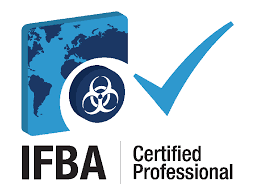 News & Events
News & Events
 13th A-PBA Biorisk Conference in Beijing, China. Strategizing Biosafety and Biosecurity in Today’s Advancing Technological Era and Changing Security Landscape.
13th A-PBA Biorisk Conference in Beijing, China. Strategizing Biosafety and Biosecurity in Today’s Advancing Technological Era and Changing Security Landscape.

28 - 31 August 2018

Pullman Beijing South Hotel – Beijing, China
Registration Closed
Registration Closed
13th A-PBA Biorisk Conference in Beijing, China. Strategizing Biosafety and Biosecurity in Today’s Advancing Technological Era and Changing Security Landscape.

Introduction
Topics of discussion range from biorisk, bio-preparedness to sharing of scientific knowledge and technical issues of concern in the region. Special features include current hottest debate on Harnessing Sciences VS Bio Threat of multidiscipline, updates on new innovative biotechnology, duel use etc.
International biosafety experts and professionals from around the world will be speaking and sharing their knowledge and experiences. This conference will be a valuable opportunity for networking and be updated with the current development on biosafety and biosecurity uniquely to the Asia-Pacific region.
Conference Highlight
2 days Pre-Conference Workshops & 2 days Conference highlights:
- Global partnership and strategy for health security, in response to changing safety and security landscape.
- Collective roles in tackling regional biorisk issues from bio-preparedness, bio-resources to dilemma between Bioethics, Biosafety, Biosecurity, etc
- Addressing impact of existing technological tools versus conventional solution for practical biosafety and biosecurity.
- More thought provoking topics and experience sharing from global strategy, to legislation, leveraging of technology for operational issues such as people, management, etc
- Pre-conference workshop of regional interest
IFBA Biosafety Professional Certification Course & Examination
Opportunity for networking:
Experience sharing and networking with international biosafety safety experts
Opportunity for exhibition & sponsorship:
Exhibits showcasing the latest in laboratory biosafety and biosecurity products and services
Biosafety Community Coming Together:
- A-PBA AGM
- IFBA Certification Exam Session
- National Biosafety Associations / Working Groups in the Asia-Pacific meeting
Who Should Attend
- Biosafety Professionals and practitioners
- Researchers and laboratory workers
- Biosafety Managers & Consultants
- Engineers and Architects
- Suppliers and Vendors
- Professionals interested in updates of biosafety and biosecurity
- Senior Administrations, Directors and Managers from healthcare industry, educational institutes, veterinary and other industry cluster
Poster Submission
Call for Poster Presentation
We are inviting biosafety practitioners and professionals who wish to share their experiences and
expertise to submit the abstract for poster presentation at the conference.
The A-PBA Organizing Committee invites submission for poster presentation at the 13th
A-PBA Annual Conference that will be held from 28th Aug to 31st Aug 2018 in Beijing,
China. The theme of the conference is: “Strategizing Biosafety and Biosecurity in Today’s
Advancing Technological Era and Changing Security Landscape”
The following broad topics are the focus for the A-PBA Conference however, papers on other
appropriate topics that relate to the goals of the conference will be considered.
- Biosafety / Laboratory Biosafety /Biosecurity / Laboratory Biosecurity
- Regulatory initiatives impacting biosafety and biosecurity
- Containment facility design, commissioning, maintenance and operation
- Biorisk applications related to Infectious diseases affecting humans or animals
- Containment/laboratory equipment
- Biological risk assessment / mitigations and communication
- Applied research and innovations impacting biosafety and biosecurity
The abstract submission deadline is 14th July 2018. Selected abstracts will be printed in the conference program booklet.
For more information on poster presentation, please contact our A-PBA secretariat at secretariat@a-pba.org or Dr. Diah Iskandriati atie@indo.net.id
Guidelines for Submission of Abstract for Poster Presentation
Each registrant may submit one abstract of his or her presentation during the conference.
Please take note that all abstracts will be reviewed by the scientific committee. All registrants
will be advised accordingly by 28th July 2018.
Selected abstracts will ONLY be accepted upon receipt of registration and payment for the conference
fee.
Abstracts
- All abstracts must be in ENGLISH, the combined length of the abstract title, list of authors, and body should not exceed 300 words. Please be sure to carefully check your abstract for content errors, spelling, names, etc. before submitting. A-PBA does not proofread for correct spelling, typographical, grammatical, or scientific errors, nor can changes be made once the abstract is submitted.
- Title should be brief, in bold capital letters at the top of the abstract.
- Author(s) should be listed by surname (underline) and initials, with the presenting author’s name underlined. The designation and organization should immediately follow the authors’ names. (Organization/Institute, department, city, state, country of author).
- Text must be typed single-spaced, font 12 Arial with only the left margin justified.
- Leave one line between the title/author/institution and the body of the abstract.
- Each abstract should contain: (a) an introductory sentence indicating the objective of the abstract (b) main content, including methods and results if relevant and (c) conclusions. It is expected that the abstract will include the summary of the original presentation.
- Graphs, tables and illustration cannot be included in the abstract.
- The abstract document MUST BE in WORD.doc format. Any other file type WILL NOT be accepted.
- Abstracts must be submitted by email to secretariat@a-pba.org as Microsoft Word attachment.
*Note to All Presenters
**The Organizing Committee reserves the right to amend or change any part of the submission guidelines without prior notice.
Pre-Conference Program
Day 1: Tuesday, 28 August 2018
| Time / Workshop | Program | Speakers |
|---|---|---|
| 9.00 – 5.00 WS 1 Room 1 | Practical, Certifiable and Sustainable BSL3/Animal BSL3 Facility Design
Principles
| Mr Theodore Traumm (World BioHazTec Inc., USA) Mr Dan Yoong (World BioHaztec Pte Ltd, Singapore) |
| 9.00 – 5.00 WS 2 Room 2 | Effective Risk Assessment, Management and Communication
| Ms Chook Mee Lan (Temasek Life Sciences Laboratory, Singapore) Dr Se Thoe Su Yun (Ministry of Health, Singapore) |
| 9.00 – 12.00 WS 3 Room 3 | Developing a Biorisk Management Program. A bilingual training in English and
Mandarin
| Mrs T.S. Saraswathy (Institute for Medical Research, Malaysia) Prof Dr Lim Yang Mooi (Universiti Tunku Abdul Rahman, Malaysia) |
| 2.00 – 5.00 WS 4 Room 3 | Dual-Use Bioethics Education for Effective Biosecurity
| Dr Tatyana Novossiolova (Law Program Center for the Study of Democracy, Bulgaria; Scientific expert, Landau Network Italy) |
| 9.00 – 12.00 WS 10 Room 4 | Outlook of Working in the Box: How to Work Safely and Efficiently in BSL-4
| Prof Xiangguo Qiu Mr. Anders Leung (Special Pathogens Program National Microbiology Laboratory Public Health Agency of Canada) |
| 2.00 – 5.00 WS 11 Room 4 | Laboratory Biorisk Assessment In Response to Emerging Infectious
Disease
| Dr Mifang Liang Dr Jun Liu (National Institute for Viral Disease Control and Prevention, China CDC) |
Day 2: Wednesday, 29 August 2018
| Time / Workshop | Program | Speakers |
|---|---|---|
| 9.00 – 5.00 WS 5 Room 1 | Applied Biosafety & Biosecurity in Animal Research
| Dr Stuart Blacksell (Mahidol-Oxford Tropical Medicine Research Unit (MORU), Thailand) |
| 9.00 – 12.00 WS 6 Room 2 | Biosafety Cabinet (BSC) – Principles Performance, Certification &
Validations
| Mr Kenny Chee (NSF Accredited Biosafety Cabinet Field Certifier ESCO International, Singapore) |
| 2.00 – 5.00 WS 7 Room 2 | Biological Waste Management
| Dr Philippe Stroot (XIBIOS Biosafety Consulting, Belgium) |
| 9.00 – 12.00 WS 8 Room 3 | Biosafety Officers: Roles, Responsibilities and Skills Development
| Mrs T.S.Saraswathy (Institute for Medical Research, Malaysia) |
| 9.00 – 5.00 WS 9 Room 3 | Biosafety & Biosecurity Emergency Responses (ER)
| Prof Dr Lim Yang Mooi (Universiti Tunku Abdul Rahman, Malaysia) Dr Diah Iskandriati (Primate Research Center, Bogor Agricultural University, Indonesia) |
| 9.00 – 12.00 WS 12 Room 4 | Enhancing Ethical Competence to Cope with Emerging Infectious Disease:
Lessons Learned from Ebola Outbreak
| Dr Bin Chen (Deputy Associate Director for Science Division of Laboratory Systems US Centers for Disease Control and Prevention) |
| 2.00 – 5.00 WS 13 Room 4 | Scientific Research and Biosafety Considerations
Biosafety Management for infectious Control Research
| Dr Di Qu (Basic Medical College of Fudan University) Dr Zhiming Yuan (Wuhan Institute of Virology, CAS) Dr Yong Zhang (National Insititute for Viral Disease Control and Prevention, China CDC) |
Conference Program
Strategizing Biosafety and Biosecurity in Today’s Advancing Technological Era and Changing Security Landscape
| Conference Session Topic | Speakers | |
|---|---|---|
| Global partnerships for Biosafety and Biosecurity in Global Health Security | ||
| Keynote 1: Working Safely and Securely: A Scientists’ Obligation to Society | Mr Jim Welch (Executive Director, Elizabeth R Griffin Research Foundation) | |
| Keynote 2: Emerging Disease Threats in China: Public Health Security Preparedness and Control | Dr Fu Gao (Academician of China Academy of Sciences Chinese Center for Disease Control and Prevention) | |
| From SARS to MERS: The Laboratory Biosafety in China | Prof Guizhen Wu (National Institute for Viral Disease Control and Prevention, China CDC) | |
| Implementing International Health Regulations and Ensuring Port Biosafety | Dr Hui Guo (Dept of Health & Quarantine Supervision, Gen Admin of Customs, P.R. China) | |
| A-PBA Partnership with China: Visions and Milestones | Dr Chua Teck Mean (Temasek Life Sciences Laboratory, Singapore) | |
| Strategizing Global Biosafety and Biosecurity in Todays’ Changing Safety and Security Landscape | ||
| New Era of China’s Biotechnology Innovation | Dr Yanrong Sun (Science and Technology Development Center The People’s Republic of China Ministry of Science and Technology) | |
| Health Security Partner (HSP) Biosecurity Programs and Regional Activities | Dr Prasad Kuduvalli (Director, Scientific Programs & Engagement, Health Security Partner (HSP), USA) | |
| Synthetic biology – New Challenges for Biosafety? | Dr Jianwei Wang (Institute for Pathogen Biology Chinese Academy of Medical Science) | |
| Preventing Agroterrorism Through Biosecurity Safeguards | Prof Dr Irma Makalinao (Department of Pharmacology and Toxicology, University of Philippines) | |
| Connecting Biosafety Communities: IFBA Mission and Vision | Ms Maureen Ellis (Executive Director, International Federation of Biosafety Association (IFBA)) | |
| International Federation of Biosafety Association: Biosafety Heroes 2017 Awards | Ms Maureen Ellis (Executive Director, International Federation of Biosafety Association (IFBA)) | |
| Biorisk Education Programs and Bioethics for Life Sciences | ||
| Not by Good Intertions Alone: Educating Scientists about Dual-Use Bioethics and Changing Mindsets on Biosecurity | Dr Tatyana Novossiolova (Law Program Center for the Study of Democracy, Bulgaria; Scientific expert, Landau Network Italy) | |
| Addressing Gaps in Biorisk Capability Building in the Region – Is it Still a Challenge | Dr Philippe Stroot (Project Leader, EU CBRN Centers of Excellence, Xibios Biosafety Consulting, Belgium) | |
| Moving from Conventional to Learner Based Biorisk Training Programs | Dr Viji Vijyayan (Assistant Dean, Duke-NUS Medical School, Singapore) | |
| Implementation of a Ladderized Biosafety Training Program in the RITM, Philippines | Dr Plebian B Medina (Research Institute for Topical Medicine (RITM), Philippines) | |
| A-PBA AGM Meeting of A-PBA, IFBA and all National Biosafety Associations/Working Groups in the Asia-Pacific | ||
| Regional Networks and Biosafety Communities: Collective Role in Safety and Security | ||
| Capacity Building of Biosafety Guarantee on Animal Disease Prevention and Control in China | Dr Zhigao Bu (Harbin Veterinary Research Institute, Chinese Academy of Agricultural Sciences) | |
| Methodology of Select Agent Management Investigation in Institute with Gap Analysis | Dr Hsing-Ming Chen (President, Taiwan Biological Safety Association, Taiwan, China) | |
| Capacity Building in Pakistan Through Global Networking Programs by Pakistan Biosafety Association | Prof Dr Shamsul Arfin Qasmi (Karachi Institute of Medical Sciences (KIMS) / National University of Medical Sciences. Islamabad, Pakistan) | |
| Bangladesh Biosafety Association – Contribution to Government and Society | Dr Asadulghani (Head of Biosafety & BSL3 Laboratory, International Center for Diarrhoeal Disease Research (ICDDR), Bangladesh) | |
| Biosafety and Biosecurity Initiatives by Thailand Biosafety Association: Strategic Framework and Challenges | Prof Dr Srisisn Khusmith (Faculty of Tropical Medicine, Mahidol University, Thailand) | |
| Governance of Biosafety and Biosecurity: Countries Experiences | ||
| The Network of National Pathgenic Microorganism Collection in China | Prof Dr Srisisn Khusmith (Chinese Center for Disease Control and Prevention) | |
| The Long Road toward a National Biosafety. A Sri Lankan Prospective | Dr R Jayasuriya (National Institute of Health Science, Kalutara, Sri Lanka) | |
| Singapore Biological and Toxin Act: 12 Years of Enactment and Experiences | Dr Se Thoe Su Yun (Biosafety Branch, Public Health Group, Ministry of Health, Singapore) | |
| Biocontainment Inspections and Certifications in South Korea | Prof Dr Lee Hei Chan (Department of Pharmaceutical Engineering, Sun Moon University, Korea) | |
| Laboratory Acquired Infections 1979 -Present | Dr Karen Byers (Biosafety Manager, Dana-Farber Cancer Institute Harvard University Medical College) | |
| Challenges in Implementing Biorisk Management Program in Academic Institution in Indonesia | Dr Anis Karuniawati (One Health Laboratory Network, Indonesia One Health University Network (INDOHUN)) | |
| Biological Risk Management and Containment – Solutions for High Risk Environments and New Technologies | ||
| Operation and Management of BSL-4 in Canada | Dr Xiangguo Qiu (Special Pathogens Program National Microbiology Laboratory Public Health Agency of Canada) | |
| Operation and Management of BSL-4 in Canada | Dr Xiangguo Qiu (Special Pathogens Program National Microbiology Laboratory Public Health Agency of Canada) | |
| U.S. CDC Laboratory Biosafety and Biosecurity Risk Assessment Efforts | Dr John M. Saindon (US Centers for Disease Control and Prevention) | |
| TB Laboratory Management and Containment | Dr Nguyen Van Hung (Dept of Microbiology & National TB Lab, National Lung Hosital, Vietnam) | |
| Laboratory Quality and Biosafety Management in Brunei | Ms Sia Fwu Shii (Ministry of Health, Brunei) | |
| Biodecontamination: Challenging the Status Quo | Mr Damien Chew (Application Specialist World BioHazTec Pte Ltd) | |
| Technology Innovations for Simple and Practical Biosafety and biosecurity Solutions | ||
| The Unnoticed Common Problems and Risks Existed in the Bio-Safety Containments Today and Counter-Measures and Technical Solutions | Mr Mark Huza (Director, R&D – Containment System, AAF Flanders, USA) | |
| Occupational Health and Safety in Animal Facility of Pharmaceutical Industry | Dr Imelda L Winoto (Dexa Laboratories of Biomolecular Sciences (DLBS), Indonesia) | |
| Development and Application of Laboratory Biosafety Equipment in China | Dr Jiancheng Qi (National Bio-Protection Engineering Centre of China) | |
| Systemic Animal Models Reservoir and Bio-safety Strategy for Serious Infectious Diseases in China | Dr Chuan Qin (Institute for Laboratory Animal Science, Chinese Academy of Medical Science) | |
| Seven Ways to Proven Energy Savings for BSL-3 Laboratories | Mr Theodore Traum (World BioHazTec Inc., USA) | |
| Closing & Final CPMA, CCDC & A-PBA | ||
A-PBA AGM 30 Aug 2018
Note: Program and speakers will be subjected to change without notice
Featured Speakers

Mr Theodore J. Traum
Speaker
Mr Dan Yoong
Speaker
Ms Chook Mee Lan
Speaker
Dr Se Thoe Su Yun
Speaker
Mrs T.S. Saraswathy Subramaniam
Speaker
Prof Lim Yang Mooi
SpeakerHotel Venue & Accommodation

Pullman Beijing South Hotel
12 Ronghua South Road. Beijing Economic Technological Development.
Yizhuang, Beijing 100176 – P.R. China
Accommodation & Room Reservation:
- Kindly send your room reservation form to h7025-re4@accor.com (Suki Chen陈淑淇 )
- Tel: +86 (10) 8722 8177 or +86 (10) 8722 8178
- Website: www.pullmanhotels.com
Download room reservation form here to enjoy special room rate for conference delegates. Kindly note that concession rate for conference delegate end on 28 July 2018.
Visa Application Procedure
To facilitate your visa application:
A-PBA and our partner (CPMA) will issue invitation letters upon confirmation of your registration and upon request
Please ensure the following conference document for VISA application:
- Two conference invitation letters (one from A-PBA and one from CPMA)
- Hotel reservation confirmation
- Flight itinerary
- Any other supporting document as required by your country’s China Embassy (kindly check with your country’s china embassy)
For further assistance on visa application, please contact
Ms Majing email : jingma@ciccst.org.cn
Prof Heya email : shiwukeya@163.com
Sponsorship & Exhibition
2 days of exhibition booth space on conference days (30 – 31 August 2018) Advertisement space in the program booklet, sponsorship of luncheon, coffee break and many more options to fit your expectation.
Who should sponsor / exhibit?
Anyone who supplies, manufactures, provides services or products correlated to biomedical
research or biological safety.
Sponsorship Application Form
Download Now
Sponsorship Prospectus Form
Download Now
Exhibition Booth Floor Plan to choose your ideal booth (to be provided at a later date)
IFBA Biosafety Professional Certification Course & Examination

IFBA Certification Exam
The IFBA is pleased to collaborate with the A-PBA in the delivery of the IFBA’s Professional Certifications during their upcoming 13th Biosafety Conference. The exam session will be held at 2pm on Wednesday, August 29th in Beijing, China.
In addition to offering the Professional Certification in Biorisk Management, we will also be offering the new IFBA Professional Certifications in Biosecurity, Biocontainment Facilities, Biosafety Cabinets and Biological Waste Management. Only those individuals who have successfully completed the pre-requisite Biorisk Management certification are eligible for these new certifications. For information on the exam content, study materials and sample questions, click
All applications must be processed through the on-line Certifior system at https://ifba.certifior.com. These instructions will guide individuals through the application process. For further details and enquiries on this session please contact the IFBA Secretariat by email at secretariat@internationalbiosafety.org.
Enquiry & Contact
General Enquiry for Registration and Payment for conference, workshop, & Booth Exhibition etc:
A-PBA secretariat’s email: secretariat@a-pba.org
Accommodation & Room Reservation:
- Suki Chen 陈淑淇
- Tel: +86 (10) 8722 8177
- Tel: +86 (10) 8722 8178
- Email : h7025-re4@accor.com
- www.pullmanhotels.com
Exhibition Booth Logistic Matter:
Ms Majing 马婧. Email: jingma@ciccst.org.cn
Other Inquiry:
For oversea matter
- Chook Mee Lan’s email: meelan@tll.org.sg
- Diah Iskandriati’s email: atie@indo.net.id
For local logistic & VISA application matter
- Ms Majing 马婧. Email: jingma@ciccst.org.cn
A-PBA Annual General Meeting (AGM)
A-PBA Annual General Meeting (AGM) 2018
This is to announce that A-PBA Annual General Meeting (AGM) 2018 will be held in conjunction with the A-PBA 13th Biosafety Conference in Beijing, China:
| Date | : 30 Aug 2018 |
| Venue | : Pullman Beijing South Hotel |
| Time | : 5.10pm local time |
Proposed Agenda of AGM:
- Adoption of the minutes of AGM 2017
- Annual report from A-PBA EXCO April 2017 – 2018
- Presentation of Financial Year (FY) 2017 Report
- Motion from EXCO – Nomination of 5 Country Representative in A-PBA Executive Council.
- Members’ motions
- Other matter & updates
A special members’ motion may be requested (by no less than 7 voting members) to be included in the agenda of the AGM by writing to the Secretary no later than 15 Aug 2018.
The AGM will start at 5.10pm sharp. Please be seated on time.
Note: Only active voting members (non-expiring individual membership) are allowed to vote at the AGM.

